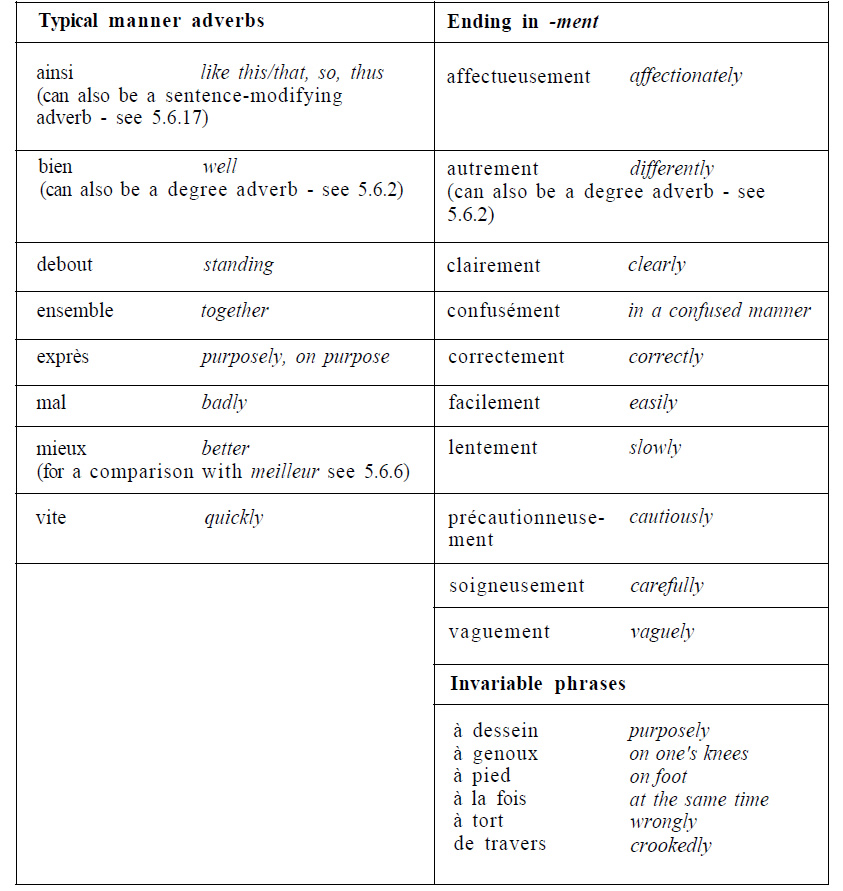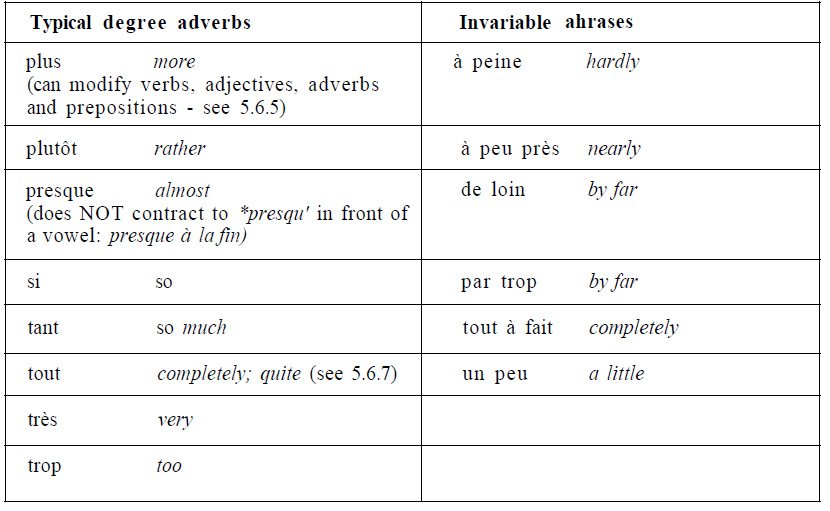Difference between revisions of "Language/French/Grammar/Degree-adverbs"
Jump to navigation
Jump to search
(Created page with "thumb <div style="font-size:300%"> Degree adverbs</div> ==What are Degree Adverbs?== Adverbs which indicate the extent to which some...") |
|||
| Line 28: | Line 28: | ||
==TABLE Typical degree adverbs== | ==TABLE Typical degree adverbs== | ||
[[File:French-Language-Degree-Adverbs-PolyglotClub.jpg]] | [[File:French-Language-Degree-Adverbs-PolyglotClub.jpg]] | ||
[[File:French-Language-Degree-Adverbs2-PolyglotClub.jpg]] | |||
Revision as of 16:53, 21 October 2021
Degree adverbs
What are Degree Adverbs?
Adverbs which indicate the extent to which something is the case are degree adverbs. As a class they can modify every kind of sentence element: verbs, adjectives, nouns, prepositions and other adverbs. But individually some of them may be restricted to modifying particular categories of item (e.g. très can modify adjectives, prepositions and adverbs - très heureux 'very happy', très à la mode 'very fashionable', très bien 'very well' - but not verbs *Je fume très 'I smoke very'):
Examples
- Je fume modérément
I smoke moderately
- Tout est si clair maintenant
Everything is so clear
- Ce ne sera pas tout à fait la vérité
That won't be entirely the truth
- Je tends ma main jusqu'à presque toucher son visage
I stretch out my hand almost to touch his face
- Elle a dressé trop brusquement la tête
She lifted her head up too quickly


